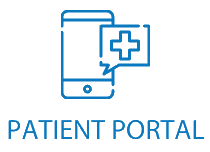Fasting for a Blood Work

For specific blood work, your doctor may ask you to fast. This means avoiding food and drinks (except water) for a few hours before the test.
While not eating or drinking can feel challenging, understanding how long you need to fast and what to expect can help ease any worries.
What is fasting for blood work?
Fasting before specific blood tests can help ensure your results are as accurate as possible. This is because most foods and drinks, except water, contain nutrients like vitamins, minerals, fats, carbs, and proteins that could affect your test results. While you’re fasting for a blood test, it’s important to avoid:
- Chewing gum: Even sugar-free gum can change your results.
- Coffee: Caffeine and other compounds in coffee can affect your results. It’s also diuretic which can dehydrate you and make it harder for healthcare professionals to draw your blood.
- Smoking: Nicotine can stay in your blood for up to 5 days and might affect certain blood levels. Ask your doctor if you should avoid smoking, vaping, or using tobacco before your test, and for how long.
- Exercising: For the most accurate results, it’s best to be at rest. Some experts suggest avoiding intense exercise for at least 24 hours before the test.
- Taking certain medications or supplements: You can usually take your regular medications, but if they need to be taken with food, ask your doctor if you should skip them before the test. Never stop taking prescribed medicines without speaking with your doctor.
How long do I need to fast before my test?
You’ll need to fast for 8-12 hours before your test. However, your doctor will give you a specific fasting time, which can vary based on the test type. Morning appointments can make fasting more manageable for your test.
Why do I need to fast before my blood work?
When you eat or drink, your body processes nutrients like sugars, fats, and proteins that can influence test results. Fasting for blood work prevents these nutrients from skewing your results, helping your doctor get a clear picture of your health.
What blood work requires fasting?
Some tests may require you to fast beforehand. If you’re unsure, check with your doctor.
Some common blood tests that usually need fasting include:
- Blood sugar (glucose) tests: These tests measure the sugar levels in your blood and are used to diagnose and monitor conditions like diabetes and gestational diabetes (which starts during pregnancy). Typically, you’ll need to fast overnight, and the test is done in the morning after 8 to 10 hours without eating. However, not all glucose tests require fasting, so checking with your healthcare provider is a good idea.
- Cholesterol tests (lipid panel): This test checks the levels of fats, like cholesterol and triglycerides, in your blood, which helps assess your risk for heart disease. While some research suggests fasting may not always be necessary, it’s essential to avoid alcohol for 24 hours before the test.
- Basic metabolic panel (BMP): This test looks at various chemicals in your blood to inform your doctor how well your organs—like your heart, kidneys, and liver—function.
Other tests may also require fasting, so if you’re unsure, ask your healthcare provider.
Related: How to Prevent Blood Sugar Spikes and Crashes
Do I need to fast for a blood test during pregnancy?
Some tests during pregnancy might require fasting, and your doctor will guide you on how to prepare for each one.
If you’re healthy and not having a high-risk pregnancy, fasting is generally safe while you’re pregnant. To stay comfortable, your doctor may suggest drinking extra water and staying indoors if it’s hot or humid.
Keep in mind that fasting can sometimes make heartburn worse for some pregnant women. Let your doctor know if you feel uncomfortable or have any symptoms while waiting for your blood test.
Also, if you’re seeing a doctor other than your OB-GYN, mention that you’re pregnant before the blood test.
I Accidentally Ate Before a Fasting Blood Work. What Should I Do?
If you ate by mistake before your fasting blood test, it’s essential to inform your healthcare provider as soon as possible. They can help ensure your test results are accurate. Sometimes, you may still be able to take the test, but in other cases, you might need to reschedule for another day.
Things you can do
When fasting for a blood test, here are some essential tips to follow:
- Water: Stay hydrated by drinking water while fasting. It won’t affect the fast test results.
- Timing: Be sure to know how long you need to fast, whether for 8, 12, or 24 hours. Plan your last meal or drink accordingly. For example, if your blood test is at 9 a.m., you should stop eating or drinking (except water) after 9 p.m. the night before.
- Medication: Continue taking your regular medications unless your doctor advises otherwise. If you’re unsure, ask your doctor when scheduling the test.
Before getting a blood test, you should talk with your doctor to determine if fasting is needed. If fasting is required, your doctor can guide you on how long to fast and what foods to avoid. Be sure to follow all their instructions carefully.
If fasting becomes too hard and you need to eat or drink, let your doctor know so you can reschedule your appointment.
Accurate test results are crucial to avoid incorrect diagnoses, so following your doctor’s fasting guidelines is essential.
DOC-AID Urgent Care does not perform outside lab tests. However, if one of our providers determines you need blood work, our on-site labs can process the request. Visit our locations in Laredo, TX, Weslaco, TX, and Pharr, TX. At DOC-AID Urgent Care, our providers will ensure you have all the information you need about fasting before your blood test.



